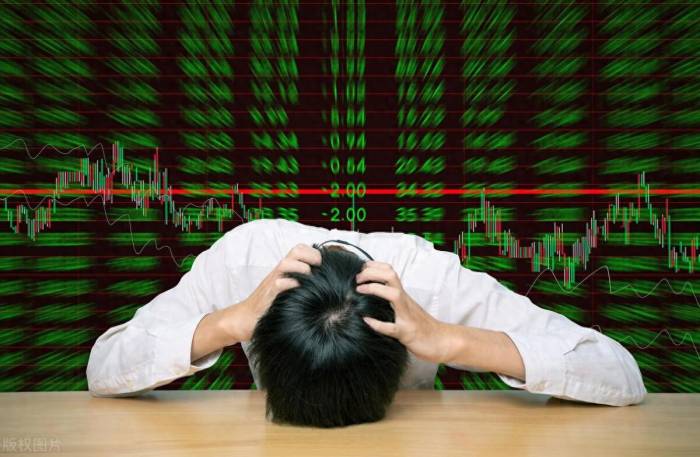U.S. Stocks Plummet, Tesla Loses $220 Billion Overnight
The recent upheaval in the financial markets has sent shockwaves throughout the global economy, especially as the three major U.S. stock indices took a considerable hit. Particularly alarming was the significant slump of Tesla, which saw its stock plummet by an astonishing 5.59%, erasing over $30 billion from its market value—an amount equivalent to around 220 billion RMB. This situation raises the question: Is this merely the beginning of a deeper crisis for the United States, and what potential ramifications could this hold for China's economy?
Currently, the market is witnessing a downward trend, with the Dow Jones Industrial Average dropping by 0.65%, the NASDAQ falling by 1.79%, and the S&P 500 decreasing by 1.2%. Such a comprehensive decline in the tech sector—from giants like Apple, Amazon, Netflix, Google, Facebook, and Microsoft—reflects a larger trend that investors may find concerning. In particular, Tesla's staggering drop of more than 5% represents a significant moment, as the company saw a loss of $30.4 billion overnight.
Advertisement
This unsettling turn of events was unexpected for many. Part of this volatility may be attributed to the recent data released in the U.S., which indicated an increase in retail sales of 0.7% month-on-month for March—the highest since September of the previous year. While this data may seem to suggest a robust economy, analysts are quick to point out the underlying concerns. It seems that the U.S. is caught in an almost paradoxical situation where booming sales do not correlate to stability. In the aftermath of Janet Yellen's previous comments, many feel the U.S. is navigating turbulent waters with a willingly blind eye.
You see, behind this recent uptick in sales lies a more complicated reality. There is increasing skepticism regarding whether this economic growth is sustainable. Inflation has not been adequately contained, and the surge in demand could likely lead to a rebound in price increases, exacerbating the already troubling inflationary pressures facing the country.
The global financial community has been quick to react, showcasing severe losses across the U.S. stock market. This decline underscores a growing sense of unease among investors regarding the economic future of the U.S. and persistent concerns about inflation and growth rates. Conversely, the price of gold has surged, positioning itself as the asset of choice for investors seeking refuge amidst the turbulence far from Wall Street.
What is particularly striking is that Tesla has already endured a drop of over 30% this year. This can be attributed not only to market fluctuations but also to the announcement of significant layoffs by Elon Musk. With the launch of Xiaomi’s new model, the Xiaomi SU7, it appears Tesla has struggled to maintain its competitive edge. The Tesla brand, once synonymous with innovation, is increasingly being challenged as domestic competitors rise in prominence, leading to a diminishing value proposition for its consumers.
Indeed, Tesla's decision to introduce zero-interest financing options illustrates its efforts to hold on to market share amidst intense competition from local manufacturers. This begs the larger question of whether Tesla can retain its past advantages or if it must now adapt to a rapidly changing industry landscape. As foreign companies in the oil vehicle sector face mounting challenges, particularly if even the giants like Tesla are having to cut jobs and implement drastic measures, the outlook for industry as a whole could be bleak.

The crisis facing the U.S. does not stop there. As American tech giants feel pressure from the rising prowess of Chinese technology, the desire to "decouple" from global supply chains becomes increasingly acute for America. Such aggressive moves to undermine the balance of global markets may only end up harming the U.S. economy and aggravating the already tense relations with other nations. Investors worldwide recognize that these strategies could lead the U.S. into a cycle of self-sabotage, perpetuating instability rather than solving it.
So, what might these developments mean for China? The immediate response has already begun to show as investors in companies like NIO, Xpeng, and Li Auto experience declines in stock prices linked to the U.S. market slump. However, this downturn could also offer a valuable test for Chinese automobile manufacturers indicating their resilience against global shifts.
In light of these dynamics, it seems apparent that the temporary challenges brought on by U.S. market volatility might serve as a catalyst for the Chinese automotive sector to evolve. With advancements in technology and burgeoning domestic brands, China could very well emerge with globally relevant manufacturers capable of standing toe-to-toe with American and European companies.
On a broader scale, the product of the U.S. economy's struggles could activate protective responses that lead to trade barriers. While the U.S. grapples with its issues, China is strategically transitioning its focus from trade with the U.S. to strengthening relationships with Latin American nations and other markets. Moreover, over 100 nations are actively engaging with China's Belt and Road Initiative, creating avenues for collaboration beyond America's sphere of influence.
As these developments unfold, the card being played by China may involuntarily place the U.S. in a more defenseless position within future economic negotiations and battles. Whether through innovation or strategic partnerships, China stands poised to handle the trials ahead while the U.S. risks clinging to dwindling advantages.